
One is the starting point of one of the bestselling phone series in the country, slowly moving up the price ladder. The other is the new kid in phone town, trying to get into the zone the first one has vacated. We are talking about the Redmi Note 10 and the recently launched Redmi 10 Prime. A few years ago, comparing a Redmi Prime device with a Redmi Note would have been unthinkable. The Prime was supposed to be a clear level below the Redmi Note, but then that was a time when the Note was generally a single device. Today, the Note is a series of products and instead of starting below Rs 10,000 is inching towards Rs 15,000 as its starting point. And the Prime is hot on its heels.
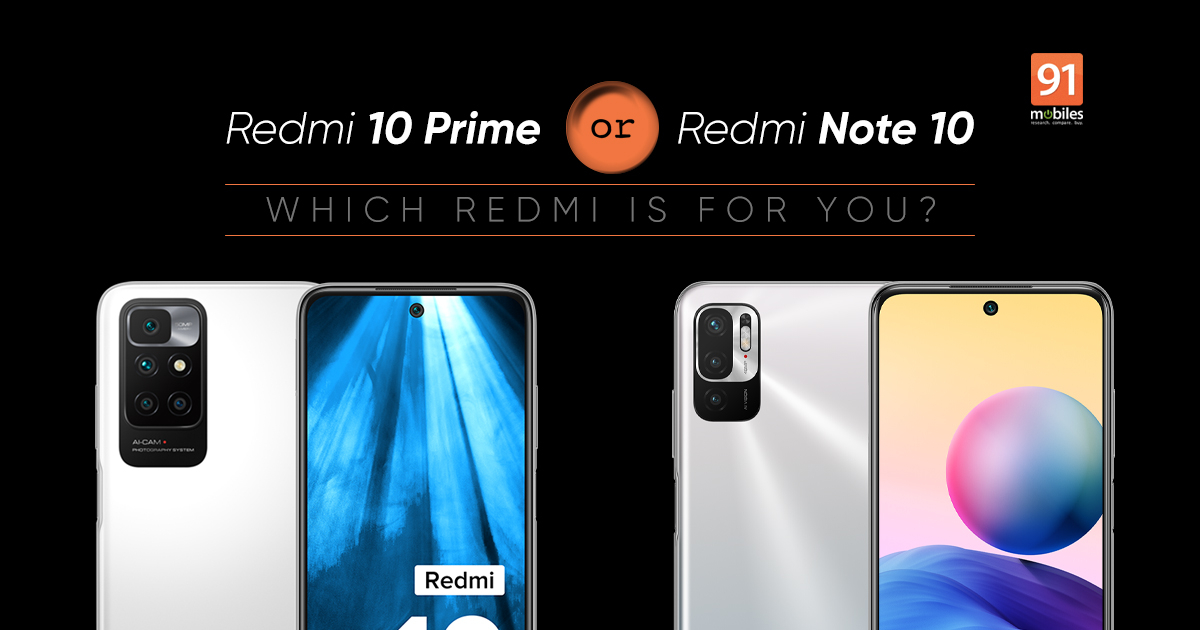
Sounds hard to believe? Well, the Redmi 10 Prime starts at Rs 12,499 while the Redmi Note 10 starts at Rs 13,999. And both come with spec sheets that compete to such an extent that many are wondering which of the two devices to pick. A few years can indeed change the tech world.
So which of the two phones should you be going for? Let me try and sort it out for you:
Appearance and looks
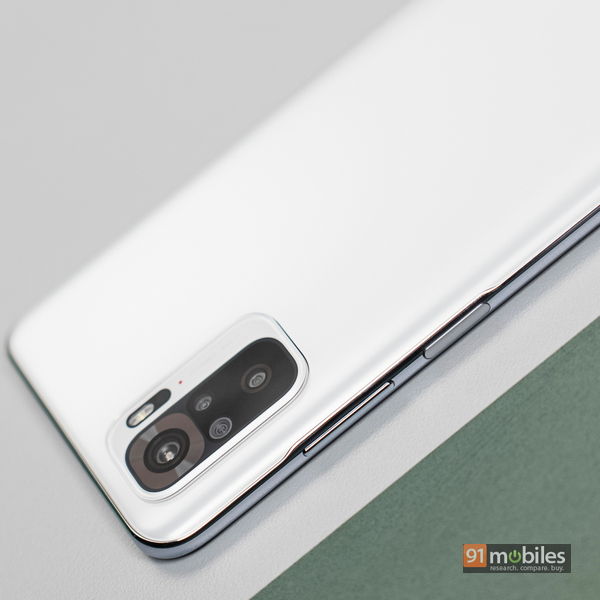
This is a clash of tastes and preferences. The Note 10 (above) is more understated while the 10 Prime (below) is well, a little flashy, especially if you go for the colour-changing Bifrost Blue variant. The camera unit of the 10 Prime also is a larger and more elaborate one. Both phones have polycarbonate backs, with Xiaomi’s EVOL design, and with tall displays in front with relatively small bezels and a punch hole notch in the top centre. The Note 10 is a little more compact at 160.46mm in height and is 8.3mm slim as compared to the taller (161.95mm) and thicker (9.56mm) 10 Prime. It is also lighter at 178.8g as against 192g. Which one works best for you is really going to be about how much you wish to be noticed. I am voting for the smaller, more understated Redmi Note 10 (in black, of course!).

Winner: Redmi Note 10
Display

This is an interesting one. While both phones have full HD+ displays, the Redmi 10 Prime has a 6.5-inch LCD one with a 90Hz refresh rate, while the Note 10 has a 6.43-inch Super AMOLED one with a normal 60Hz refresh rate. It is a close-run thing, with the Note 10 churning out better and brighter colours, but the scrolling being discernibly faster on the 10 Prime. I would go for the brighter and more colourful display of the Note 10 here, but I can see some folks being swayed by the 10 Prime’s faster refresh rate and bigger display rate – and it does handle colours well too, although not as spectacularly as the Note 10.
Winner: Redmi Note 10
Processor
This is perhaps one of the easier rounds. The Note 10 runs on the Qualcomm Snapdragon 678 processor while the 10 Prime is powered by the Helio G88 chip. The Helio G88 is the newer chip but the Snapdragon 678 wins on most benchmarks. Only one winner here, really.Winner: Redmi Note 10
RAM and storage
On paper, this would seem to be pretty much even-steven. Both phones have 4GB / 64GB and 6GB / 128GB RAM and storage variants. And both support expandable storage up to 512GB via a microSD card. However the 10 Prime edges ahead as it has extendable RAM by up to 2GB (which means it can borrow up to 2GB from the storage if needed), which gives it a slight edge over the Note 10, although it might not be very evident in performance terms.Winner: Redmi 10 Prime
Gaming and multimedia
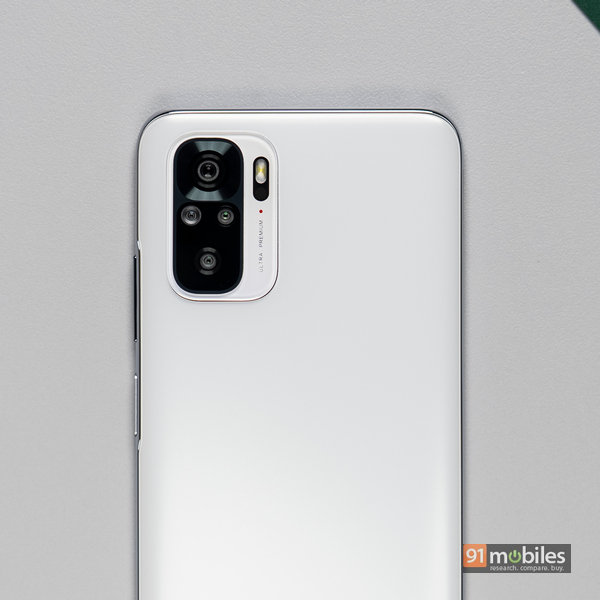
Neither the 10 Prime nor the Note 10 is a gaming device. While both will sail through casual gaming sessions, the likes of Call of Duty and Asphalt will make them wobble at higher settings. That said, the Note 10 was more comfortable with intense and heavy graphics games than the 10 Prime, and also seemed to have slightly better sound quality. The difference will not leap out at you immediately but spend some time with each device and you will start noticing that the Note 10 just is a tad smoother. The sound on the Note 10’s dual speakers also had a clear edge over the ones on the 10 Prime, although the latter’s were impressively loud as well. The slightly bigger display of the 10 Prime (and perhaps the higher refresh rate) does make it better for just viewing content, but overall, my vote would go to the Note 10 as the better gaming and multimedia phone of the two.
Winner: Redmi Note 10
Rear cameras
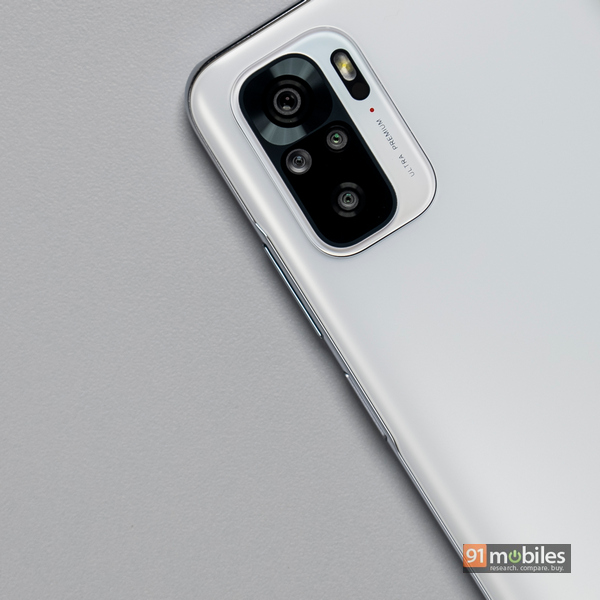
This is where it gets surprising. The Note series has always been a step ahead of the Prime series in the camera department. But the 50-megapixel main sensor on the 10 Prime actually puts up a good show. We would not say it outguns the 48-megapixel one on the Note 10 – it is more inconsistent, but in good light conditions, it sometimes actually does better than the Note 10 with more detail and surprisingly good colour reproduction. Both devices come with 8-megapixel ultrawide, 2-megapixel macro and 2-megapixel depth sensors. The macro on the 10 Prime seemed to just work a lot faster than on the Note 10, but then the ultrawide on the Note 10 does better. This is a surprise to me, but the Redmi 10 Prime actually seems to have cameras (actually, make that one single main camera) that are not too distant from the more expensive Note 10. Close enough for me to call this one a tie.
Winner: Tie
Selfie camera
The Redmi 10 Prime loses the ground it gained on the rear camera with a surprisingly ordinary 8-megapixel front facing snapper. It might just get away with social network friendly snaps in good light conditions but it still gets beaten by the 13-megapixel selfie snapper on the Note 10, which delivers much better details and colours.Winner: Redmi Note 10
Software
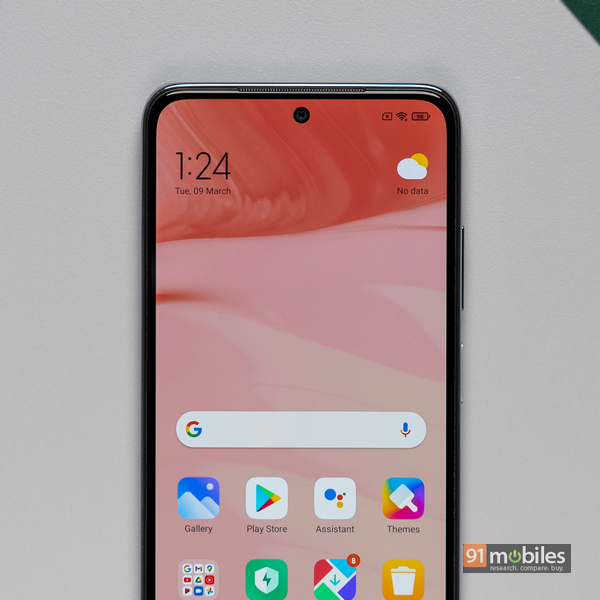
This is as equal as it gets. The Redmi 10 Prime comes with MIUI 12.5 on top of Android 11 right out of the box while the Redmi Note 10 came initially with MIUI 12 on top of Android 11, but has since been updated to MIUI 12.5. The UI is clean and relatively uncluttered with hardly any ads in sight. This is a tie.
Winner: Tie
General usage

In terms of general usage and tackling everyday tasks, there is not too much between the two devices. Both raced through tasks like social network checks, handling mail, messaging and the odd spot of casual gaming easily. The fingerprint scanners on the side worked smoothly and both were equally adept at handling calls. I would say that the general audio quality on the Note 10 was a little better and also that its more compact form factor made it easier to use, which is why I am giving this round to it, but the difference is a small one.
Winner: Redmi Note 10
Battery life

The Redmi 10 Prime seems to have the clear edge here with a 6,000mAh battery as compared to the 5,000mAh one on the Note 10. However, battery life on the two devices is not that far apart – yes, the Redmi 10 Prime easily gets close to two days of normal use on a full charge, but the Note 10 is not too far behind. Is that due to the better power management on the Qualcomm 678? Perhaps. Another factor is the fact that while the Redmi 10 Prime can be charged only at a maximum charging speed of 18W (and has a 22.5W charger in the box), the Note 10 gets charged at 33W and has a 33W charger in the box. I am awarding this one to the Prime for just lasting longer, but the difference is not as large as the numbers indicate.
Winner: Redmi 10 Prime
Price
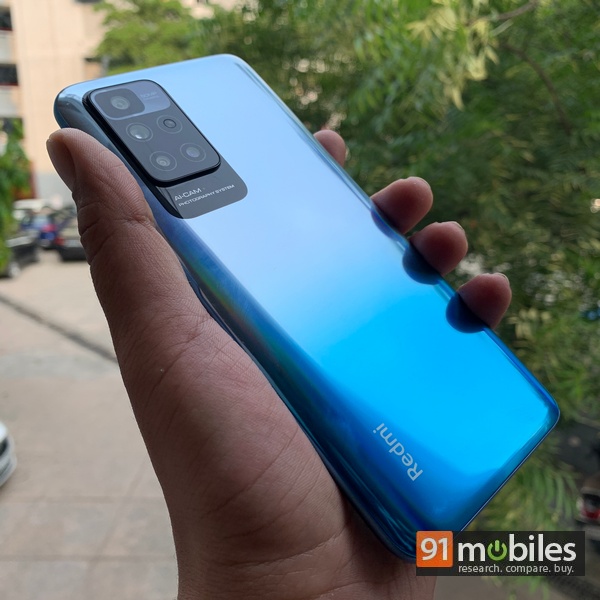
The Redmi 10 Prime comes at Rs 12,499 for the 4GB / 64GB variant and Rs 14,499 for the 6GB / 128GB one. The Note 10 on the other hand retails at Rs 13,999 for the 4GB / 64GB variant and Rs 15,499 for the 6GB / 128GB one. It is interesting to observe that the difference between the devices is Rs 1,500 at the base variant, and Rs 1,000 for the 6GB / 128GB one. The lower price, of course, gives the 10 Prime an edge for those on a tight budget, but if someone has close to Rs 15,000 to invest, then the Note 10 comes into play (as does the Redmi Note 10S, but that is another story). This goes to the 10 Prime, courtesy the lower price tag.
Winner: Redmi 10 Prime
Final decision: Which is the Red for Me, Note or Prime?
So which is the Redmi for you? As the comparison shows, the gap between the Prime and the Note has really narrowed. I really think that a lot is going to depend upon how much you value that display and processor. Those are the real and most visible edges that the Note 10 holds over the 10 Prime – that Super AMOLED display does look better and the Snapdragon 678 turns in a much better performance generally than the Helio G88, although neither is really designed for hefty gaming, and both are generally at par while handling routine tasks. Some might also prefer the slightly more understated and classy design of the Note 10. There are also benefits like better sound and a better selfie camera. But those come at a greater price.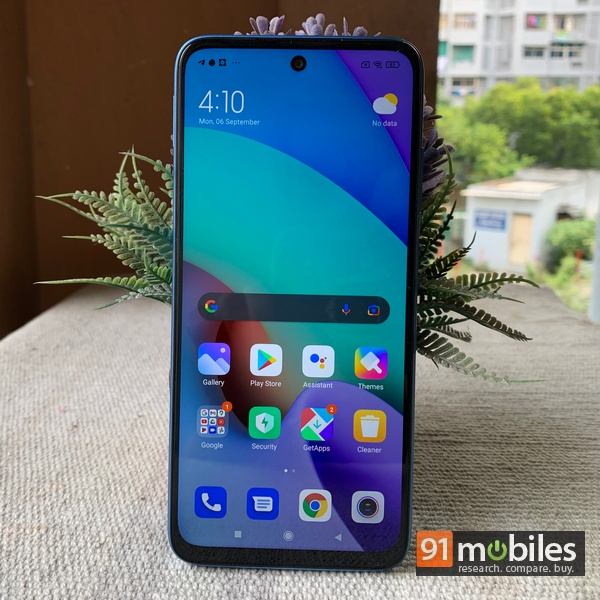
For a lower price, the Redmi 10 Prime does throw in a fair bit – a bigger display, a bigger battery, a rear camera that’s surprisingly good and very consistent performance. If gaming is not very high on your agenda and you are not an AMOLED fanboy, I would have no qualms recommending the Redmi 10 Prime to you. But well, if you do have the budget for it, the Note remains…as Noteable as ever.
The post Redmi 10 Prime vs Redmi Note 10: the Redmi phone for you? first appeared on 91mobiles.com.
via ©91 Mobiles









No comments:
Post a Comment